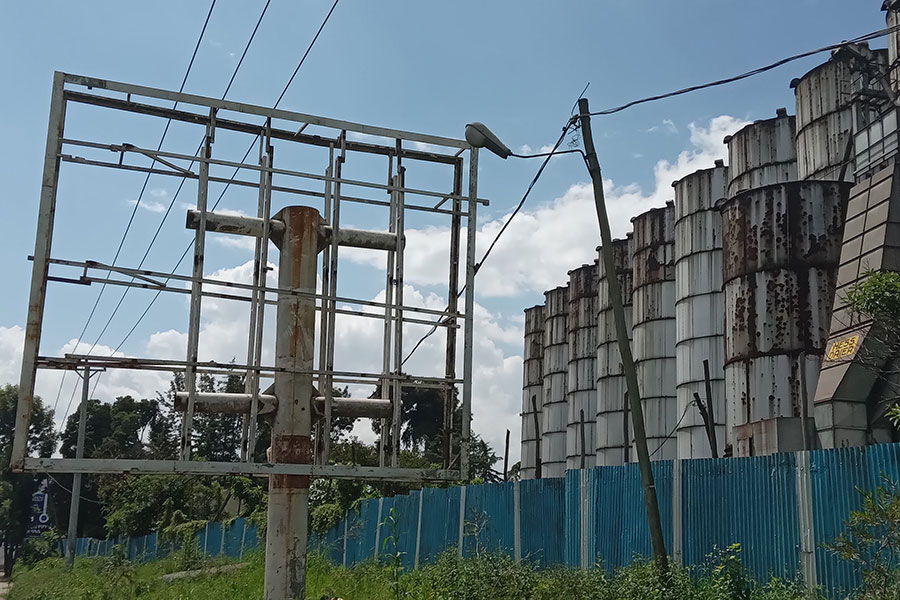
Fortune News | Oct 27,2024
Aug 6 , 2022
By Christian Tesfaye
Talking to people, it is hard not to be surprised at the level of misunderstanding about the economy, what drives it and how solutions could be arrived at with existing resources. Take debates about opening up the economy. The discourse is being had by anybody but economists or people with business backgrounds.
Most die-hard arguments against privatising or liberalisation are not by people who have done the homework of closely following economic issues or rigorously reading literature in the area. In fact, rarely does one hear about whether opening up would bring in foreign currency, support skill development or bring competition and drive growth. It is mostly incoherent talking points about how foreign firms repatriate profits and how ownerships by non-domestic institutions take away the Ethiopian-ness of companies such as Ethio telecom or Ethiopian Airlines.
Seen from a certain angle, this makes sense. Everyone that has reached adulthood has done so under either a communist military regime (which did more than any to stilt economic growth) or a protectionist government that elected to drive growth through heavy state intervention. Stock exchanges were trashed as nothing more than gambling houses and floating currencies as neoliberal ventures. Even political opponents of these governments are influenced by the worldview of protectionism.
There are always disagreements, and this is okay. The marketplace of ideas is a good thing that can inform foresighted policymaking. There is indeed a great deal to be said about the process, timing and rationale of opening up the economy. But the politicisation of the issue using misguided arguments and conspiracy theories by people entirely uninterested in policy and macroeconomic issues is regretful.
How can we change this? How do we get people interested in relevant (not on social media but in reality) ideas, theories and current practices of business, economics and finance?
Perhaps this problem could change if people were invested in the economy in ways other than being paid a wage. This is primarily by getting exposure to various markets through investment. In the US, it is estimated that half of all households have holdings in capital markets. Savings and pensions by ordinary people are deployed to own shares of companies, funds and government securities. This should happen in Ethiopia.
Imagine had the public owned shares in Ethio telecom, which released some end-of-year performance measures. Had it been a publicly-listed company, this would have been called an earnings call, and it would have been obligated to release much more exhaustive financial reports for the year, including its balance sheet and income statement. The discussion afterwards would have been much more interesting than Ethio telecom bragging about its performance and everybody else lapping it up.
A public invested in Ethio telecom would have reason to ask much more interesting questions. What is the breakdown of revenue by product and services? What were the costs of rebuilding destroyed infrastructure? What are the projections for next year, positive NPV investments and return on equity and investment? In dollar terms, how does profit compare to previous years? What is the free cash flow, and can an 8.5pc revenue growth be sustained after Safaricom Ethiopia begins operations?
The public would be interested in details and numbers. An ordinary investor may not have the tools or the time to analyse financial statements and follow every listed business. But they would read reports, learn basic economics and seek professional advice instead of the shills on social media. It is not that presently accepted views are infallible and without their flaws. It is not that professionals do not make mistakes. This risk will never go away. But the answer is not to put up walls swigging recommendations by people that get their information from conveniently sampled readings of history, economy and theory.
PUBLISHED ON
Aug 06,2022 [ VOL
23 , NO
1162]


Fortune News | Oct 27,2024

Radar | Aug 26,2023

Commentaries | Sep 10,2023

View From Arada | Jul 20,2019

My Opinion | Sep 23,2023

My Opinion | Sep 23,2023

Fineline | Jun 08,2019

Commentaries | May 17,2025

Commentaries | Apr 19,2025

Viewpoints | Apr 13, 2025

Photo Gallery | 175538 Views | May 06,2019

Photo Gallery | 165755 Views | Apr 26,2019

Photo Gallery | 156116 Views | Oct 06,2021

My Opinion | 136830 Views | Aug 14,2021

Dec 22 , 2024 . By TIZITA SHEWAFERAW
Charged with transforming colossal state-owned enterprises into modern and competitiv...

Aug 18 , 2024 . By AKSAH ITALO
Although predictable Yonas Zerihun's job in the ride-hailing service is not immune to...

Jul 28 , 2024 . By TIZITA SHEWAFERAW
Unhabitual, perhaps too many, Samuel Gebreyohannes, 38, used to occasionally enjoy a couple of beers at breakfast. However, he recently swit...

Jul 13 , 2024 . By AKSAH ITALO
Investors who rely on tractors, trucks, and field vehicles for commuting, transporting commodities, and f...

Oct 18 , 2025
The political establishment, notably the ruling party and its top brass, has become p...

Oct 11 , 2025
Ladislas Farago, a roving Associated Press (AP) correspondent, arrived in Ethiopia in...

Oct 4 , 2025
Eyob Tekalegn (PhD) had been in the Governor's chair for only weeks when, on Septembe...

Sep 27 , 2025
Four years into an experiment with “shock therapy” in education, the national moo...

Oct 18 , 2025 . By NAHOM AYELE
In a sweeping reform that upends nearly a decade of uniform health insurance contribu...

Oct 18 , 2025 . By BEZAWIT HULUAGER
A bill that could transform the nutritional state sits in a limbo, even as the countr...

Oct 18 , 2025 . By SURAFEL MULUGETA
A long-planned directive to curb carbon emissions from fossil-fuel-powered vehicles h...

Oct 18 , 2025 . By BEZAWIT HULUAGER
Transaction advisors working with companies that hold over a quarter of a billion Bir...